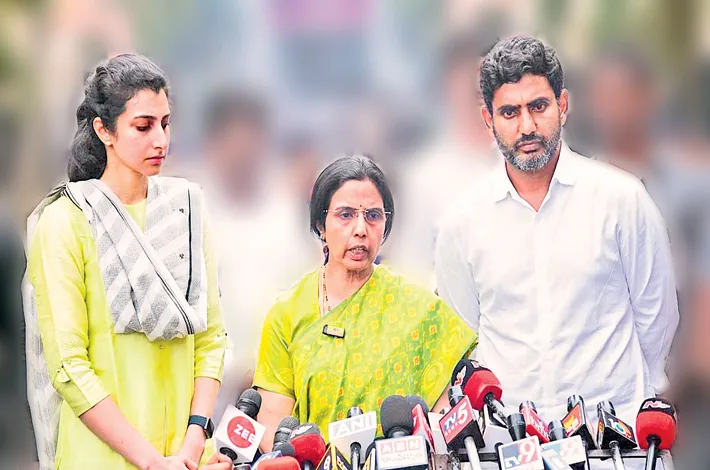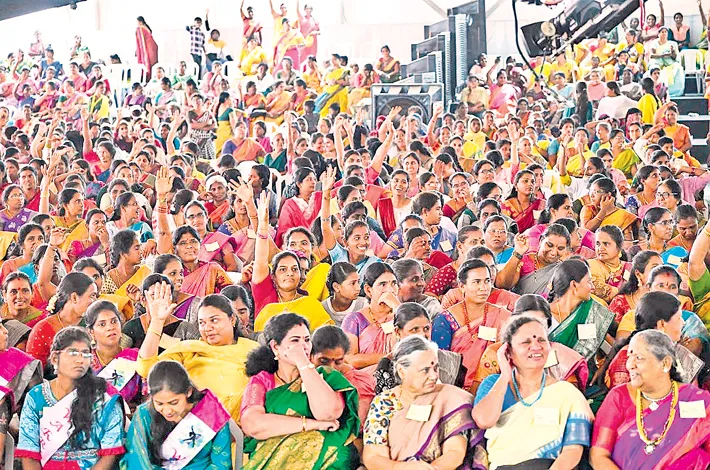The Importance of a Healthy Sex Life in Marriage: An Indian Perspective
17-04-2025 12:00:00 AM

In India, mental health remains a taboo subject, and couples may hesitate to seek professional help for issues like anxiety or depression. A fulfilling sex life can act as a buffer, providing a safe outlet for emotional expression and reducing the psychological burden of daily life
In the intricate tapestry of marriage, a healthy sex life serves as a vital thread, weaving together emotional, physical, and spiritual intimacy. While the topic of sex remains sensitive in many cultures, particularly in India, its significance in fostering a strong marital bond cannot be understated.
In the Indian context, where marriage is often viewed as a sacred union and a lifelong commitment, nurturing a healthy sexual relationship is essential for the well-being of both partners and the stability of the institution itself. This article explores the importance of a healthy sex life in marriage, addressing its emotional, physical, and cultural dimensions, with a focus on the unique dynamics of Indian society.
Emotional Bonding and Intimacy
A healthy sex life is a cornerstone of emotional intimacy in marriage. Sexual connection transcends mere physicality; it is an expression of love, trust, and vulnerability. In India, where marriages are often arranged and couples may take time to develop emotional closeness, sex can serve as a bridge to deepen understanding and affection. Regular, consensual, and fulfilling sexual interactions foster a sense of security and belonging, allowing partners to feel valued and desired.
In many Indian households, societal pressures and familial expectations can create emotional distance between spouses. A healthy sex life provides a private space for couples to reconnect, communicate non-verbally, and reaffirm their commitment to each other. For instance, in urban India, where dual-career couples often juggle demanding schedules, intimacy can become a casualty of stress and fatigue. Prioritizing sexual connection can help couples maintain emotional resilience, reducing the risk of misunderstandings or feelings of neglect.
Conversely, a lack of sexual intimacy can lead to feelings of rejection or dissatisfaction, which may strain the relationship. In the Indian context, where divorce is still stigmatized and couples are expected to resolve conflicts within the marriage, neglecting this aspect can exacerbate emotional disconnection. Thus, fostering open communication about sexual needs and desires is crucial for emotional harmony.
Physical and Mental Well-Being
Beyond emotional benefits, a healthy sex life contributes significantly to physical and mental health. Sexual activity has been shown to reduce stress, improve cardiovascular health, boost immunity, and promote better sleep. For Indian couples, who often face high levels of stress due to work, family responsibilities, and societal expectations, regular intimacy can serve as a natural stress reliever. The release of oxytocin and endorphins during sex creates feelings of happiness and relaxation, enhancing overall well-being.
In India, mental health remains a taboo subject, and couples may hesitate to seek professional help for issues like anxiety or depression. A fulfilling sex life can act as a buffer, providing a safe outlet for emotional expression and reducing the psychological burden of daily life. For women, in particular, who may face societal pressures to prioritize family over personal needs, sexual satisfaction can boost self-esteem and reinforce a sense of individuality within the marriage.
Moreover, a healthy sex life can strengthen the physical bond between partners, fostering a sense of partnership in navigating life’s challenges. In a culture where physical affection outside marriage is often frowned upon, the marital bed becomes a sacred space for mutual care and connection.
Cultural Context and Challenges
In India, discussions about sex are often shrouded in secrecy, shaped by conservative traditions and societal norms. While ancient texts like the Kama Sutra celebrate sexuality as an integral part of life, modern Indian society tends to view sex as a private matter, rarely discussed openly, even between spouses. This cultural reticence can create barriers to a healthy sex life, particularly for newlyweds who may lack the knowledge or confidence to express their desires.
Arranged marriages, still prevalent in India, add another layer of complexity. Couples may enter marriage with limited prior interaction, making it challenging to establish sexual compatibility early on. Societal expectations, such as the pressure to conceive soon after marriage, can further reduce the focus on mutual pleasure, turning sex into a duty rather than a shared joy. For women, especially, patriarchal norms may discourage assertiveness in sexual matters, leading to unaddressed needs and dissatisfaction.
Additionally, the influence of extended family structures in India can limit privacy, making it difficult for couples to nurture their sexual relationship. Living with in-laws or managing household responsibilities often leaves little time or space for intimacy. Urbanization and nuclear families are changing this dynamic, but the challenge persists in many households.
Overcoming Barriers and Building a Healthy Sex Life
To cultivate a healthy sex life, Indian couples must prioritize open communication, mutual respect, and education. Breaking the silence around sex is the first step. Couples should feel empowered to discuss their preferences, boundaries, and concerns without fear of judgment. Workshops, counseling, or even online resources can provide valuable guidance, especially for young couples navigating the early years of marriage.
Education is also critical. In India, comprehensive sex education is often absent, leaving individuals with misconceptions or unrealistic expectations. Access to accurate information about sexual health, consent, and pleasure can empower couples to make informed choices and enhance their intimacy.
Moreover, couples should strive to create a safe and private space for intimacy, even in busy or joint-family households. Small gestures, like scheduling time together or expressing affection through non-sexual touch, can pave the way for a deeper sexual connection. For women, fostering a sense of agency in sexual matters is essential, as it promotes equality and mutual satisfaction in the relationship.
Finally, addressing external pressures—such as societal expectations or the rush to start a family—requires teamwork. Couples who align on their priorities and support each other’s needs are better equipped to nurture a fulfilling sex life.
Conclusion
A healthy sex life is not a luxury but a necessity for a thriving marriage, particularly in the Indian context, where cultural and societal factors add unique complexities. It strengthens emotional bonds, promotes physical and mental well-being, and fosters mutual respect between partners. By overcoming taboos, prioritizing communication, and embracing education, Indian couples can unlock the transformative power of sexual intimacy.
In doing so, they not only enhance their marriage but also contribute to a more open and progressive understanding of love and partnership in Indian society. As India continues to evolve, embracing a holistic view of marriage—one that includes a healthy sex life—will pave the way for stronger, more resilient relationships








